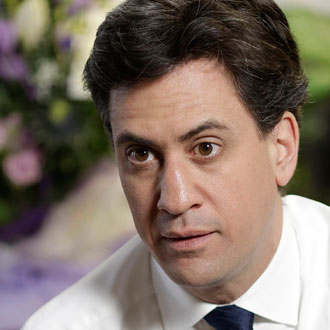Labour commits to honouring review body recommendations on GP pay

The Labour Party has pledged to ‘respect’ the recommendations of the independent pay review body on any increase to GP pay if successful in the general election.
The launch of the party’s health manifesto ahead of the May poll also reaffirmed its commitment to repealing competition law aspects of the Health and Social Care Act, a pledge they maintain will not amount to another structural reorganisation of the NHS.
It also reiterated a pledge to recruit 8,000 more GPs as well as reintroducing the 48-hour GP appointment target which has been branded ‘unrealistic’ by GP leaders.
In its manifesto, Labour accused the coalition of ‘reneging’ on the independent review process after the Department of Health opted not to follow the recommendations of the Review Body on Doctors’ and Dentists’ Remuneration (DDRB) on GP pay. This included a ‘derisory’ pay increase of 0.28% in 2014/15, after the DDRB suggested the pay increase should increase GP income by 1%, the party said.
This year, for the first time, DDRB refused to use the ‘flawed’ formula of previous years after finding it had not delivered intended pay increases for GPs but the Government still went ahead and applied the method to calculate a 1.16% uplift which accountants said would calculate as a 10% fall in take-home pay for GPs.
The DDRB had recommended that the DH negotiate with the BMA how to actually achieve a 1% increase in GP earnings after expenses without using the formula approach.
Labour’s manifesto stated: ‘Labour believes in national pay frameworks and the stability and recognition they give to the health and care workforce.
‘Labour will respect the views of independent pay review bodies – rather than irresponsibly brushing them aside or reneging on the agreed processes as the current Government has recently done.’
Meanwhile on repealing the Coalition’s health reforms it added: ‘The effects of the Health and Social Care Act have been all too apparent. Service standards are declining.
‘Accountability for problems in the NHS is ducked by ministers. Service improvements and collaboration have been hindered by competition law, and millions have been wasted on competition lawyers.’
Pulse July survey
Take our July 2025 survey to potentially win £1.000 worth of tokens











